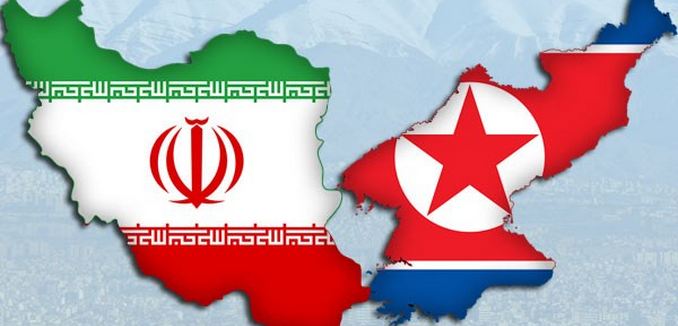There is a “real risk” that Iran and North Korea are engaged in illicit nuclear cooperation, a former United Nations weapons inspector and nuclear non-proliferation expert told The Algemeiner on Thursday.
David Albright, president of the Institute for Science and International Security, called on the Trump administration to investigate any potential nuclear collaboration between the two nations.
“I think the main thing is to try to discover it,” Albright said. “We know it [cooperation] happens in the missile and conventional weapons areas. As for the nuclear area, we look at it as an open question. We haven’t seen enough evidence yet to make an actual accusation, we just don’t know. But I think there is a real risk that Iran and North Korea could cooperate on nuclear matters. It requires a lot of attention from our intelligence services.”
He added that such cooperation could be a violation of the 2015 nuclear agreement between Iran and world powers. If Iran is found to be circumventing the deal by advancing its nuclear program with the help of North Korea, that revelation would “be quite damaging to Iran,” Albright observed.
Pyongyang and Tehran could be sharing two types of nuclear technology. The first, according to Albright, would be “more traditional information about building nuclear weapons and testing nuclear weapons, which North Korea certainly has plenty of to give to Iran.” It has been reported that an Iranian delegation observed North Korea’s 2013 nuclear test.
The second potential realm of nuclear cooperation would involve “reentry vehicle technology for a nuclear warhead.” This is an area where Iran can likely aid North Korea. U.S. officials determined in 2006 that Iran had modified the nose cone of the Shahab-3 ballistic missile to accommodate a nuclear warhead.
Earlier this month, Lt. Col. (ret.) Dr. Refael Ofek and Lt. Col. (res.) Dr. Dany Shoham, experts at the Begin Sadat Center for Strategic Studies, assessed that nuclear cooperation between Iran and North Korea was “likely.”
Ofek and Shoham noted that the countries developed complementary technologies, concluding:
The chronology, contents, and features of the overt interface between Iran and NK mark an ongoing evolutionary process in terms of weapons technologies at the highest strategic level. The two countries have followed fairly similar nuclear and ballistic courses, with considerable, largely intended, reciprocal technological complementarity. The numerous technological common denominators that underlie the NW and ballistic missile programs of Iran and NK cannot be regarded as coincidental. Rather, they likely indicate – in conjunction with geopolitical and economic drives –a much broader degree of undisclosed interaction between Tehran and Pyongyang.
Sen. Ted Cruz (R – Texas) urged three Obama administration officials last year to reveal what the intelligence community knew about nuclear cooperation between Iran and North Korea.
[Photo: Fars News ]




